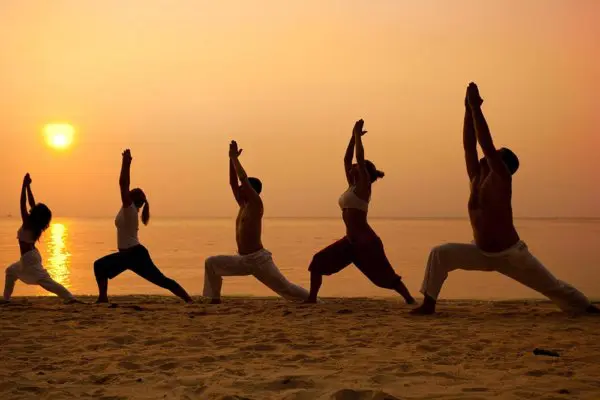What is Refuge Recovery?

Working through a substance addiction often means seeking help, and part of that is finding a recovery option that works for you. While options like 12-step groups are the most popular in the United States, alternatives like Refuge Recovery are quickly gaining in popularity as non-theistic and non-12-step recovery becomes more mainstream.
Refuge Recovery is a substance abuse recovery group operating on a non-profit basis, offering non-12-step and non-theistic recovery. Like Alcoholics Anonymous, Refuge Recovery offers free assistance, group meetings, and lifestyle guidelines for participants to use to get clean and sober. Unlike Alcoholics Anonymous, Refuge Recovery is based on Buddhist practices of mindfulness, mindful living, and recovery, designed to treat the causes behind the addiction rather than the addiction itself. This approach is very appealing to many, and Refuge Recovery now offers meetings around the U.S., and internationally.
How Does Refuge Recovery Work?
Refuge Recovery offers therapy as well as a meeting-based and self-therapy group designed to help participants move towards a healthier lifestyle. Like AA, the meeting based therapy is not intended to replace therapy or medical treatment, but rather to supplement it and offer assistance and support for recovering addicts who are going back to their lives.
However, Refuge Recovery also offers full therapy, including transitional living options in some parts of the United States. Here, the program focuses on a combination of Buddhist-based mindfulness techniques and science-based therapy including Mindfulness-Based Relapse Prevention, Cognitive Behavioral Therapy, Eye Movement Desensitization and Reprocessing, somatic experience, attachment theory, internal family systems treatment, yoga, motivational interviewing, and teaching mindfulness-based living skills. This full program is intended to help recovering addicts to withdraw from their substance and to learn new physical and mental skills that will help them get back to their life.
“Refuge Recovery” reflects the basis of the program, which is based on the idea that most people use substances such as drugs or alcohol as an escape from their stress and their lives. Because behavioral studies consistently show that stressed individuals are more likely to use drugs, typically to self medicate or to escape, this belief does have science behind it. The first step of joining Refuge Recovery is to agree to abstinence from harmful behaviors like drugs and alcohol.
Meetings – Refuge Recovery meetings operate in nearly the same way as AA meetings, which you may or may not be familiar with. During the meeting, a ‘secretary’ or facilitator guides the group through a list of chosen topics, to encourage group discussion and sharing. However, Refuge Recovery Meetings change from AA meetings in that they also incorporate mindfulness and meditation. In most cases, the meeting format is as follows:
- The secretary reads the introduction
- Leader reads the preamble
- A volunteer reads more content
- 20-minute meditation
- Weekly reading assignment (Typically from the EightFold Path of Refuge Recovery, Four Truths, or a section from the book, Refuge Recovery)
- The Speaker chooses a topic and shares their experience with it
- Group sharing, each person takes 3-5 minutes to share something related to the topic, or their thoughts/opinions
- The group leader closes the meeting with a short reading and typically a reminder of the importance of anonymity
- The facilitator requests donations and/or help with cleanup as necessary
- Announcements and a group dedication
Meetings vary in content based on the participants, but typically follow this loose structure.
The Four Noble Truths
Refuge Recovery asks you to live according to The Four Noble Truths. These are as follows:
- Taking inventory of suffering, to understand what you have experienced and what you have caused.
- Investigate the causes and condition of your suffering and begin to let go.
- Understand that recovery is possible and take refuge in recovery rather than in addiction
- Follow the Buddhist Eightfold Path.
The Eightfold Path

Refuge Recovery asks you to live according to The Four Noble Truths. These are as follows:
- Understand that recovery begins when you abstain from all substances, work towards forgiveness, and acknowledge that you need help so you can begin to take responsibility for yourself and your impact on others.
- Build the intention to build a lifestyle that is rooted in compassion and unattached appreciation.
- Take refuge in community and practice
- Abstain from substances and incorporate Buddhist principles into your life.
- Give back to others and try to be of service to them
- Put effort into creating a daily practice of meditation, yoga, exercise, actions, kindness, and compassion.
- Practice mindfulness daily
- Practice focusing the mind through meditation
Unlike the 12 steps, where the steps are a linear path, the Eightfold Path is a guideline of principles which should be integrated into your daily life, every day.
Mindfulness and Meditation
Refuge Recovery is one of the only recovery programs to incorporate meditation and mindfulness into every group meeting and into recovery. The group offers a variety of meditations and mindfulness practices, with the goal to reach the four foundations of mindfulness.
- Mindfulness of body/breath
- Mindfulness of feelings
- Mindfulness of mind states
- Mindfulness of truth
These foundations are reached through daily practice of mindfulness and meditation. Refuge Recovery offers guided meditation during groups (typically 20 minutes), meditation during their detox program, and help with meditation, yoga, and other mindfulness practices in the home during recovery.
Is Refuge Recovery Effective
Refuge Recovery is relatively new in that it was founded in 2014 by renowned counselor and Buddhist teacher, Noah Levine. Levine founded Refuge Recovery based on science and Buddhist practices, and wrote a book to accompany the method. Levine holds a Master’s in Counseling Psychology and was once an addict himself.
While Refuge Recovery is a relatively new practice, the methods used by the program are proven by science.
Cognitive Behavioral Therapy – Refuge Recovery offers CBT and other types of therapy to help with addiction recovery. Cognitive Behavioral Therapy is a science-based treatment used to help recovering addicts to change their thought patterns and behavior. By exploring destructive and harmful behavior and thoughts, CBT helps to prevent relapse, especially over long-term therapy.
Mindfulness and Recovery – Mindfulness has been shown to be highly effective in reducing stress, cravings, and relapse, providing the recovering addict continues to practice. When you stop practicing mindfulness, the benefits gradually go away.
Buddhism and Recovery – Refuge Recovery is not the first Buddhism-based recovery, and there are multiple studies showing that Buddhist lifestyles are ideal for recovering addicts because they increase self-awareness and spirituality, which decrease risk-behavior.
Meetings and Recovery – Self-help meetings have been positively correlated with abstinence and continued recovery, through a combination of providing an outlet, peer pressure, and accountability. While there are no Refuge Recovery specific studies, a 16-year review of AA attendees found that the more meetings a participant regularly attended, the more likely they were to stay clean or sober.
A Non-Theistic Approach to Recovery

While Refuge Recovery is based on Buddhist teachings, it is non-theistic, meaning that it does not involve a higher power or God. This is ideal for people who want to get in touch with spirituality without following a specific religion, or who follow a specific religion and do not want to take a traditional Christian-based recovery program.
Refuge Recovery is a relatively new recovery option, but it offers a variety of science and mindfulness-based recovery techniques designed to help you improve your lifestyle, your life, and your way of thinking. This holistic approach attempts to tackle the causes behind addiction, so that a recovering addict can change their life for the better.
If you or a loved one is suffering from a substance use disorder, it is important that you get you help. A treatment center can give you the assistance you need to get over physical addiction and then to begin to tackle mental addiction.
Beginnings Treatment Centers drug addiction treatment centers are located in beautiful and sunny Orange County in Southern California, which has one of the best and most active recovery communities in the United States. Please Contact Beginnings Treatment Centers now for a no-cost consultation to start the journey of recovery.

